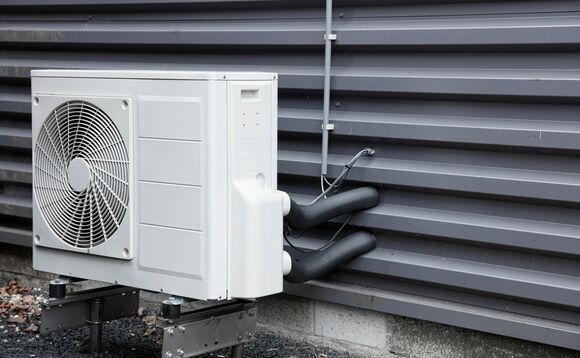
New government-backed research project confirms heat pumps are an effective form of heating homes, even on cold days
Air Source Heat Pumps (ASHPs) could be as much as three times more efficient than traditional gas boilers and are capable of working well even in the coldest weather conditions, new data from a government-backed research project has revealed.
The Electrification of Heat (EoH) Demonstration Project, which was funded by the Department for Energy Security and Net Zero (DESNZ), was launched to understand the technical and practical feasibility and constraints faced by a mass rollout of heat pumps in British homes.
Researchers analysed data from 742 heat pumps which were installed and monitored between November 2020 and August 2022. It examined the heat pumps' Seasonal Performance Factors (SPFs), which indicate the in-situ efficiency of a heat pump system over the course of 12 months.
The interim data and results from this monitoring were released today by Energy Systems Catapult, the Net Zero Innovation Centre appointed to lead the consortium undertaking the project.
The update reveals that the median SPF observed during the initial phase of the research was 2.80 - or 280 per cent. The researchers hailed the results as a "significant increase" on the median SPF of around 0.3 to 0.4 - or 30 to 40 per cent - seen when the Renewable Heat Premium Payment scheme (RHPP) heat pump trial was undertaken between 2011 and 2014.
However, while the researchers acknowledged the average performance of ASHPs has improved significantly, performance variation remains high, prompting them to suggest that progress is still required to improve the consistency of heat pump design and installation to support a large-scale rollout of heat pumps in existing homes.
The EoH demonstration project also analysed the performance of heat pumps on some of the country's coldest days, including when mean daily temperatures fell to as low as -6C. During this time, they found only a marginal decline in whole system performance.
One of the main concerns about heat pumps among consumers is that they will not work as efficiently during colder weather conditions. However, the latest findings suggest the technology can continue to work well, even in cold conditions.
According to the data the median ASHP system efficiency was 2.44 of 244 per cent on the coldest days of the year, with researchers stating that this shows that heat pumps can continue to operate with high efficiency and provide heat to homes through a range of different property types even during cold weather conditions.
High Temperature ASHPs were also included in the research. These were described as ASHPs which can achieve a flow temperature which is similar to that of a gas boiler and were found to be a "viable solution" for meeting the heating demands of a range of properties where undertaking wider energy efficiency improvements is not feasible.
The Energy Systems Catapult released its new data in the same week that reports from Bosch that warned that heat pumps are not suitable for use in older homes, something which the findings from the new project arguably contest.
The analysis published in the new report - titled Interim Insights from Heat Pump Performance Data and Interim Heat Pump Performance Data Analysis Report - will be updated, and additional analysis undertaken after the completion of the project's latest monitoring period in Autumn 2023.
The research also examined the effectiveness of hybrid heat pump systems which run alongside boilers and are commissioned to run 'cost-optimally', meaning the system chooses when to operate either the heat pump or the boiler, depending on which is the cheapest option at the time.
Overall, the research found the heat pump could meet the base space heating requirements while the boiler covered hot water production and met peak space heating demand.
According to the data, heat pumps in hybrid systems typically met around 39 per cent of the space heating demand. They were also found to have a median heat pump efficiency of 2.367 or 237 per cent, which is lower than standalone ASHPs, giving an estimated overall heating system efficiency of between 1.26-1.42 - or 126 - 142 per cent - which it said would depend on the efficiency of the boiler as well as the proportion of hot water demand.
Marc Brown, business leader for homes at the Energy Systems Catapult, said the interim findings show "just how far the industry has come in innovating to improve the performance and efficiency of heat pumps."
"With the release of this data, we can finally put to bed the notion that heat pumps do not work in cold weather conditions and that they are inefficient to run," he added.
"We've observed the exact opposite. They are three times more efficient than gas boilers and work in cold weather conditions. Innovation is changing the game in the heating sector."
However, while he acknowledged that the technology is taking steps in the right direction, he warned "we should not grow complacent."
"At the risk of sounding like a broken record, innovation and training are critical to the success of a mass rollout of heat pumps," he added. "We've done the hard work and demonstrated that heat pumps work - the UK is heat pump ready.
Brown urged the government and industry to now commit to investing in up-skilling existing installers in low carbon heating solutions and take more steps to attract "new talent" into the sector.
"Get this right, and we can be a world leader in heating solutions," he concluded.